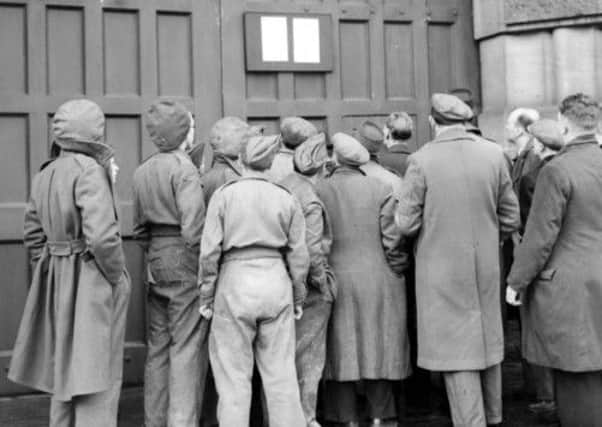David Blunkett: For the sake of their victims, the worst killers should face threat of lifetime behind bars


But the quid pro quo was clear. They had taken a life, the right of an individual or individuals to enjoy the rest of their life. That is why for the most heinous crimes it was felt that clear sentences should be available in order to curtail the freedom of those responsible to enjoy what they had taken away.
Over the years, this “life means life” concept was eroded. Challenges were made to sentences and in the end the right of the Home Secretary to fix what was known as a tariff beyond 25 years was also challenged through the European Court of Human Rights in Strasbourg.
Advertisement
Hide AdAdvertisement
Hide AdAt that time I was Home Secretary. I took the decision to ask the two houses of Parliament to change the law to at least give us a chance of taking a step back to what was originally intended when judicial killing was removed from our country.
So, in the Criminal Justice and Sentencing Act 2003, I introduced a range of measures which included that for those most terrible crimes and specifically child murder, life should once again mean exactly what it said.
It is precisely the decision of the people of this country that has now been challenged in the Strasbourg court and it’s worth reminding ourselves just what those three individuals who mounted this legal challenge did to warrant their liberty being taken away for the rest of their lives.
Jeremy Bamber murdered his adoptive parents, sister and her twin sons, aged six, with a rifle in 1985. Douglas Vinter stabbed his wife four times and strangled her in 2008. And Peter Moore murdered and mutilated four men “for fun” in 1995, repeatedly stabbing victims and leaving them half naked.
Advertisement
Hide AdAdvertisement
Hide AdThere can be nothing more heartbreaking for a Home Secretary than meeting the parents of murdered children. Heartbreaking because there is so little you can say or do that will bring comfort. One of the few things that I was able to say was that I would be prepared to, and in fact did, change the law. On those occasions, my conviction was reinforced that we needed to use the process of hearing and responding to the British people by taking decisive action.
This included being determined to overcome obstacles that court judgments placed in my way. Take the situation over Roy Whiting, the murderer of Sarah Payne, where, because of the ruling against the Home Secretary’s power in relation to sentencing, it was necessary to find ways of ensuring that this particular killer would face 50 years in jail, even if at the time a full life sentence was not available.
Putting people like this out of harm’s way and protecting ourselves has to be a basic right in any democratic country. But there is a fundamental constitutional issue here. If a democratically elected Parliament cannot determine the right sentence for the particular crime, then democracy itself is undermined.
Accepting fully that taking away someone’s life may well constitute an unacceptable measure in the 21st century (and the European Convention across the whole of the Council of Europe area is signed up to this), the strongest signal and the most appropriate punishment must surely be the removal of that liberty for the whole of the life of an individual who has committed a crime beyond any suggestion of redemption.
Advertisement
Hide AdAdvertisement
Hide AdAt the same time, with the Criminal Justice and Sentencing Act, we strengthened the sentences available to judges so that the minimum terms could be imposed for a lesser but extremely serious offence.
These clearly allowed for the review of the incarceration after the minimum term had been served. In other words, we have in other circumstances met the requirements of the Strasbourg judges.
But on the issue of crimes which would in the past have warranted the black cap of the judge and the imposition of death, we surely have the right to impose a punishment which is commensurate with the act committed. Not in a stinking hole in the ground or without contact with other human beings. Not degrading treatment in terms of a failure to provide food, showers or exercise.
That is why Parliament itself should be asked to reaffirm its decision of a decade ago. Yes, looking for ways to technically challenge and overcome the judgment but also indicating that in a democracy it is those elected and not those appointed outside our borders who should determine our future.
Advertisement
Hide AdAdvertisement
Hide AdConfidence in our democratic process is crucial to avoid alienation, despair and much worse. We must not allow this incident to play into the hands of those extremists who would use any occurrence of this sort to cause devastation to the very basis of our wider democratic practices.